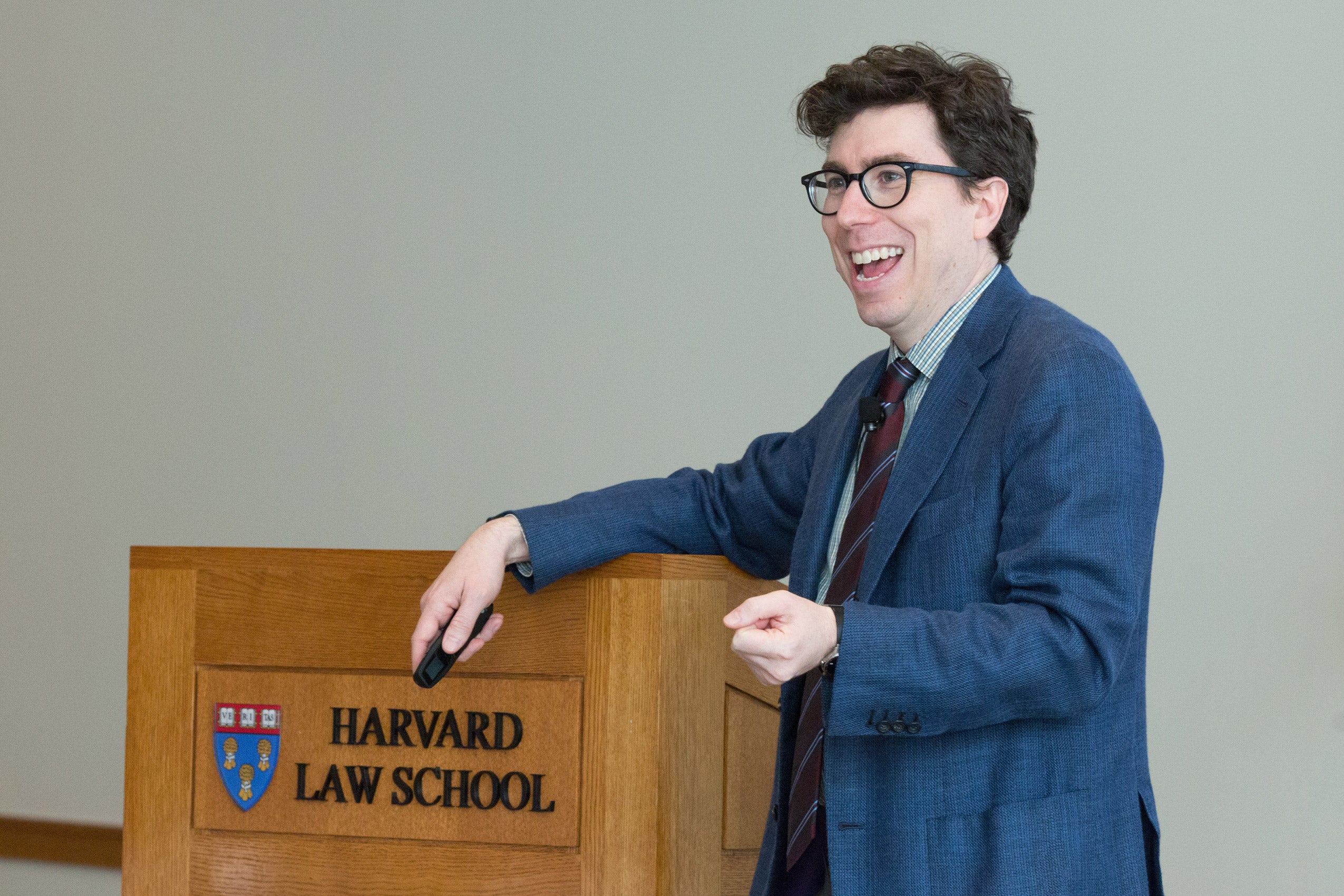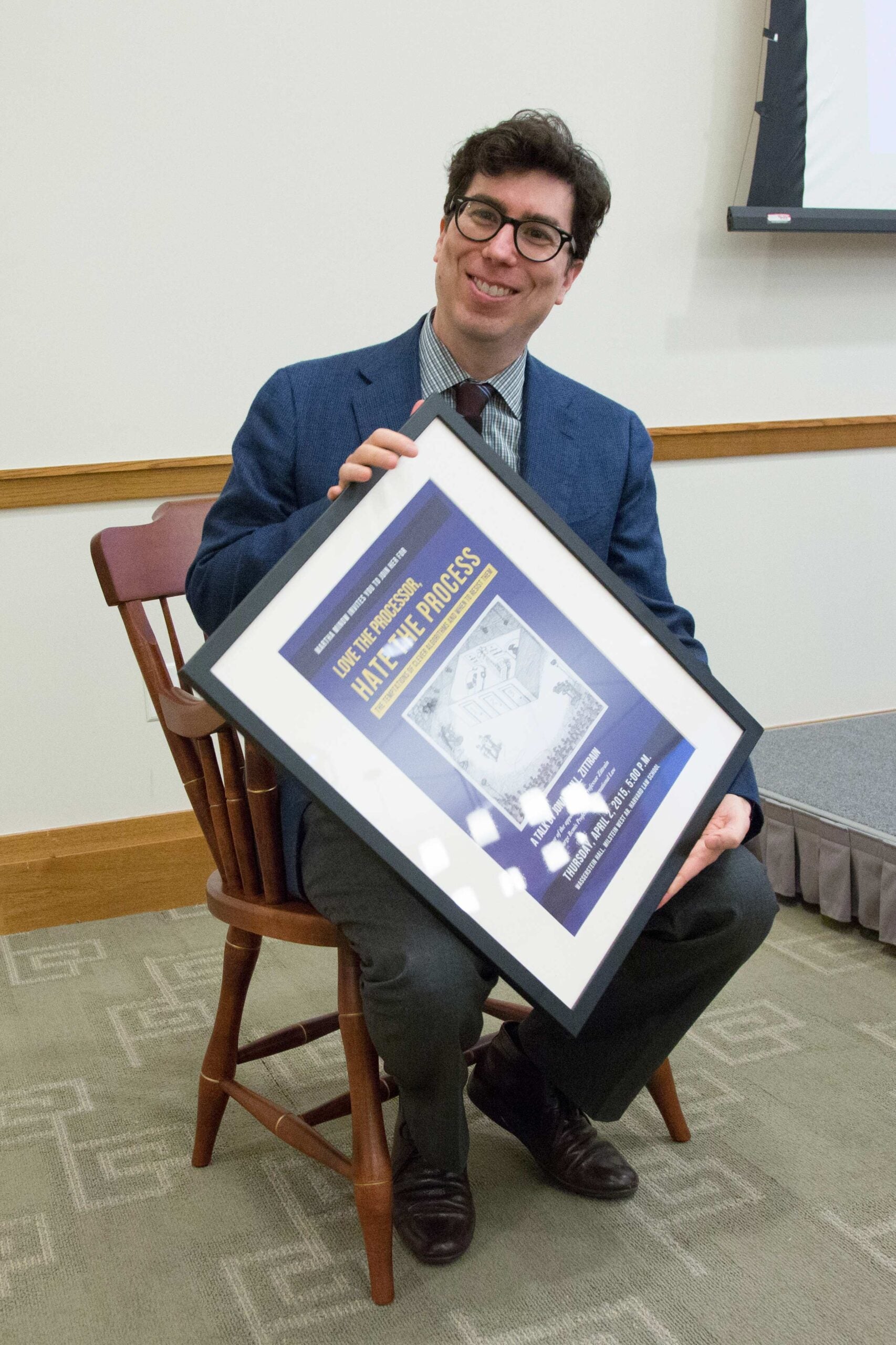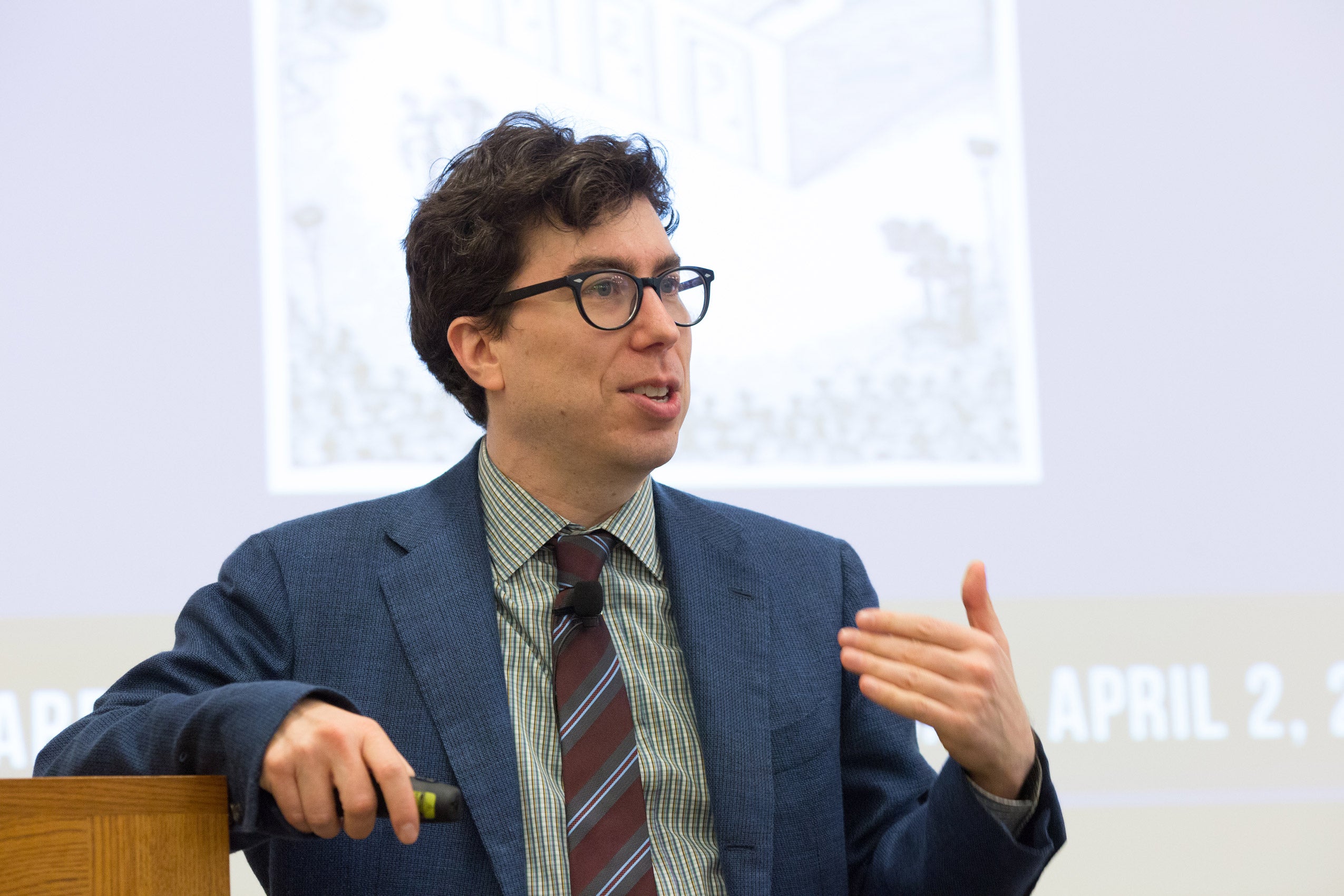On April 2, Harvard Law School Professor Jonathan Zittrain ’95 addressed the impact of algorithms on our lives, on and offline. His lecture “Love the Processor, Hate the Process: The Temptations of Clever Algorithms and When to Resist Them” marked his appointment as George Bemis Professor of International Law.
In her introduction, Dean Martha Minow praised Zittrain, co-founder of the Berkman Center for Internet & Society and author of “The Future of the Internet—And How to Stop It,” as “a leader in the conversation about access to global information.” She also quoted the former chair of the Federal Communications Commission Julius Genachowski ’91, who called Zittrain “one of the world’s leading strategic thinkers on communications policy in the 21st century.”

Zittrain told the audience that we seem to be at a moment of “existential angst” about artificial intelligence and how it will change us. And in a lecture that was funny, eloquent, wide-ranging and interactive, he guided the audience through a presentation on the way obscure algorithms are shaping our world.
A few of the many examples included a hypothetical scenario in which Facebook would be used as a tool to sway the outcome of the 2016 presidential election and a Google search that delivered an anti-Semitic site as its first result. He then polled the audience to see when they viewed the examples as going too far and requiring intervention. The answer seemed to be: very infrequently.
Reviewing related ideas by a range of theorists, including the distinction that has been made between technologies we think of as “tools” and others we think of as “friends,” Zittrain speculated that we are less likely to want to change a “tool,” like a random web search, rather than a personalized technology, such as Facebook.

Zittrain also described some of the questions raised by these algorithms for academe as our information landscape is shifting. He imagined scholars becoming so tuned into reader reaction, for example, that they would modify their writing based on which sections had been most read. “There are hard truths that people aren’t ready to hear yet,” he said. “But the ten percent who keep reading, those are the people that you actually want to reach. … These are the kind of algorithms that we are going to face as academics, asking questions about our own identities.”
In addition to holding the George Bemis Professorship of International Law at Harvard Law School, Zittrain is a professor at the Harvard Kennedy School of Government and also is a professor of computer science at the Harvard School of Engineering and Applied Sciences.
Co-founder of the Berkman Center for Internet & Society and vice dean for library and information resources at the Harvard Law School Library, his research interests include battles for control of digital property and content, cryptography, electronic privacy, the roles of intermediaries within Internet architecture, human computing, and the useful and unobtrusive deployment of technology in education.
His contributions include performing the first large-scale tests of Internet filtering in China and Saudi Arabia, and as part of the OpenNet Initiative co-editing a series of studies of Internet filtering by national governments: Access Denied: The Practice and Policy of Global Internet Filtering; Access Controlled: The Shaping of Power, Rights, and Rule in Cyberspace; and Access Contested: Security, Identity, and Resistance in Asian Cyberspace.
Zittrain is a member of the board of directors of the Electronic Frontier Foundation and the Board of Advisors for Scientific American. He has served as a trustee of the Internet Society and as a Forum Fellow of the World Economic Forum, which named him a Young Global Leader. He was a Distinguished Scholar-in-Residence at the Federal Communications Commission, and previously chaired the FCC’s Open Internet Advisory Committee. His book “The Future of the Internet—And How to Stop It” predicted the end of general purpose client computing and the corresponding rise of new gatekeepers.
